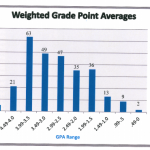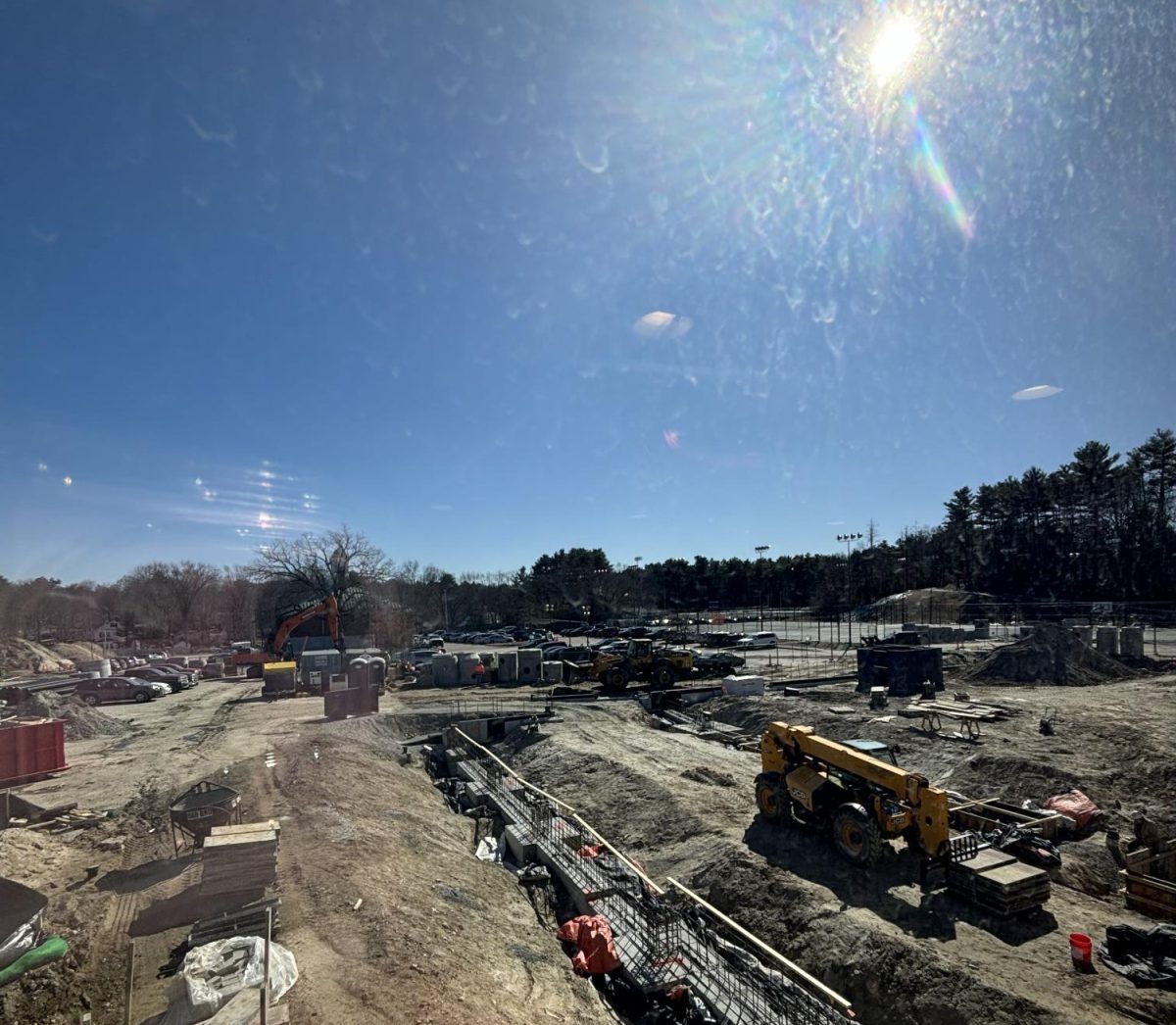
Imagine you’re heading into your sophomore year. You’ve done decently in a couple CP1 classes in your freshman year, but you know you have to get your Grade Point Average up. You’re a little afraid of the intense, fast-paced, big, bad Honors classes that your Middle School guidance counselors warned you about. However, upperclassmen say that Honors classes are not only easier than you thought, but will guarantee you higher grades.
Who do you believe? Here’s the answer: Grab a waiver form, and get into all the Honors classes that you can. The statistics show a definite abnormality in the change in GPA when kids move from a CP1 classes to Honors classes — GPAs almost always go up. In a sample (a confidential record of the grades and GPAs of randomly selected students) of 22 students in the senior class — with a normal distribution of GPA’s — there were exactly 17 instances when a kid moved from a CP1 class to an Honors class or vice versa, which resulted in a mean increase in GPA of approximately .4 points.
These statistics reveal two things: Honors classes contain inflated GPAs, and CP1 students do not benefit from that inflation.
If you look at the chart, a student can receive an 85 in a CP1 English class — which equals a GPA weight of 3.0. If that same student moves to Honors English and receives the same grade of 85, he or she will receive a weighted GPA of 3.5 — a significant increase that is worth the academic risk, specifically because there is a low probability of a decrease in GPA.
What we would assume is that some students would benefit from moving up a level, and some would be overwhelmed and do worse. If the levels are accurately measuring the amount of knowledge learned by a student, then the average change in GPA should be around 0 — certainly nowhere near .4 points. There is a 1.9% chance of that type of increase occuring if we assume that there is no difference in increasing levels.
Classes are leveled to fit the needs of the student taking the class: a student taking a CP2 or CP1 class is probably taking the class because they are not — or so they believe — equipped for the rigor of an Honors class, and they accept the downscale of .5 GPA points for taking a class one level lower.
This arbitrary gap of .5 between weighted levels puts the CP1 student at an extreme disadvantage because when colleges compare the CP1 GPAs to the inflated ones in Honors, the CP1 GPA lacks the benefit of both the institutional .5 bump and the implicit inflation that occurs.
Now, there could be other variables that are affecting this increase; one being that a kid would be expected do better in a sequential year of schooling, after more experience. However, the mean increase classes from year to year (excluding History classes) is only a .05 increase in GPA. So, there may be a slight increase in GPA from year to year, but certainly not enough to explain such an increase when moving up a level. In fact, with a sample of this size, there is a significant chance that the difference between grades from year to year could average out to about zero, which would be as expected and only further highlight to be grade inflation in Honors classes.
So, why exclude History classes? History seems to be the worst offender of grade inflation from year to year, from level to level. Every time a student moved up a level in History in this sample, they saw an increase or no change in their GPA. Also, the mean increase in grade from year to year for History classes in the sample is .35, a whole .3 higher increase in GPA than the mean increase for year to year changes for the grades in Science, Math, and English in this sample. The probability of that occurring assuming that there was actually no evidence of any grade inflation? .00021%.
Another proposed explanation for the results is that students in Honors classes benefit from the smart kids around them. Does that explain the abnormal increase in GPA from CP1 to Honors? Possibly, but there is no osmosis-like-transfer of brainpower — because if it were true, wouldn’t every kid that joined an Honors class be inherently smarter or receive a better grade? Sooner or later, an influx of CP1 students into Honors classes would have the opposite effect.
One argument that has been offered by many students is summed up this way: Although there is generally little difference in the curriculum between CP1 and Honors, the CP1 students receive a lower GPA for completing the same work at a slightly slower pace.
According to the Student-Parent handbook, it states Honors classes as having “rigorous academic expectations and the challenging pace” while CP1 classes are described for students “who have done above average work in classes at a similar level.” So what’s the real difference? What are CP1 kids doing that result in a loss of .5 points to their GPA? Other than not taking the Honors class, of course.
Whatever the reason, this problem needs to be fixed. Colleges will continue to receive inaccurate GPA readings from kids from all levels, which gives a clear disadvantage to the CP1 kid who does not benefit from the grade inflation of any Honors class. The leveled classes need to be just that: leveled, but also fair.
The Professional Learning Communities in the school are designed to help this type of problem; however, there seems to be too much focus on horizontal integration rather than vertical integration. Honors classes from year to year are aligning their curriculums out as the freshman, sophomore, junior, and senior teachers from the same level iron out a common curriculum while the vertical integration of different leveled classes is pushed off to the side.
But until changes occur, go grab that waiver. Sign up for the Honors class, take some retakes, increase your GPA. Just call it magical brainpower osmosis.







